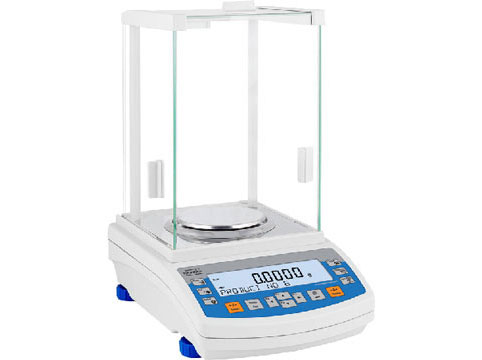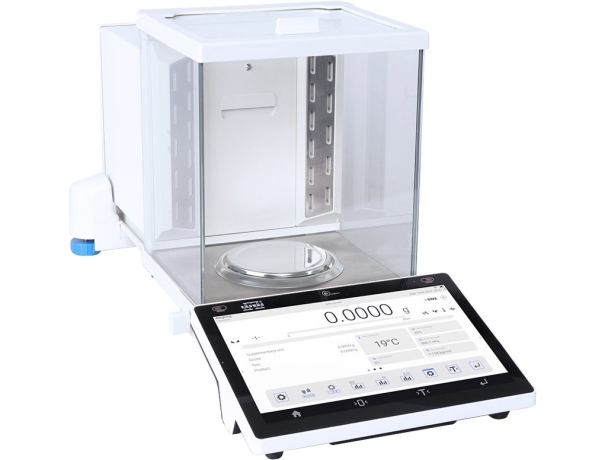In scientific laboratories and various industries, accurate and precise measurements are of utmost importance. When it comes to weighing substances, two commonly used instruments are analytical balances and precision balances. They look similar on the outside but are different in purpose. This article aims to shed light on the differences between analytical balances and precision balances, highlighting their applications and key characteristics.
What is Analytical Balance
Definition and Functionality
An Analytical Balance is a highly precise weighing instrument designed for measuring small masses with high accuracy. It is typically used in scientific research, pharmaceutical laboratories, and quality control settings where minute differences in mass are critical. Analytical balances employ a highly sensitive load cell or electromagnetism to measure weight and provide precise readings.
Features and Specifications
Analytical balances often have a readability of up to 0.0001 grams (0.1 milligrams) and can weigh substances up to a maximum capacity of several hundred grams. They are equipped with a draft shield or enclosure to protect the sample from external influences, such as air currents or moisture. Additionally, They usually have built-in calibration mechanisms to ensure accurate measurements.

Applications
Due to their high precision, analytical balances are used in various applications that demand meticulous measurement. These include:
- Pharmaceutical research and development
- Chemical analysis and synthesis
- Environmental testing
- Forensic analysis
- Material testing and analysis
What Is Precision Balance
Definition and Functionality
A Precision Balance, also known as a top-loading balance, is designed for measuring larger masses with reasonable accuracy. While not as precise as analytical balances, precision balances offer a balance between accuracy and affordability. They are commonly used in laboratories, manufacturing facilities, and educational institutions for routine weighing tasks.
Features and Specifications
Precision balances typically have a readability of 0.001 grams (1 milligram) and can handle larger sample sizes, ranging from a few grams to several kilograms. They often lack the enclosed weighing chamber found in analytical balances but may include features such as tare functionality and multiple weighing units for added convenience.
Applications
- Food production and portion control
- Educational laboratories
- Jewelry and gemstone weighing
- Industrial quality control
- Research and development

Comparing Analytical and Precision Balances
When deciding between an analytical precision, several factors should be considered:
1. Accuracy and Precision
Analytical balances offer the highest level of accuracy and precision, making them suitable for tasks requiring minute measurements. Precision balances, while not as accurate as their analytical counterparts, still provide reliable results for most routine weighing applications.
2. Sensitivity and Readability
Analytical balances are more sensitive and have a higher readability. They can detect even the smallest changes in mass, which is crucial for precise measurements. Precision balances, on the other hand, have a slightly lower sensitivity but are still suitable for most general-purpose weighing tasks.
3. Sample Size and Weight Capacity
Analytical balances are designed for measuring small sample sizes, typically ranging from a few milligrams to a few grams. Precision balances are capable of weighing larger samples, ranging from grams to kilograms. The weight capacity of precision is higher compared to analytical.
4. Cost and Affordability
Analytical balances are generally more expensive due to their higher accuracy and precision. Precision balances offer a more affordable option while still providing satisfactory accuracy for many applications.
Choosing the Right Balance
When selecting a balance, the following considerations should be taken into account:
- Consideration of Measurement Needs: Evaluate the required accuracy and precision for your specific application. If high precision is crucial, an analytical balance is recommended. For general weighing tasks, a precision is usually sufficient.
- Budget Constraints: Consider your budget limitations and choose a Laboratory balance that meets your measurement requirements while staying within your financial means.
- Application Specifics: Understand the nature of your work and select a balance that aligns with your specific industry or laboratory requirements.